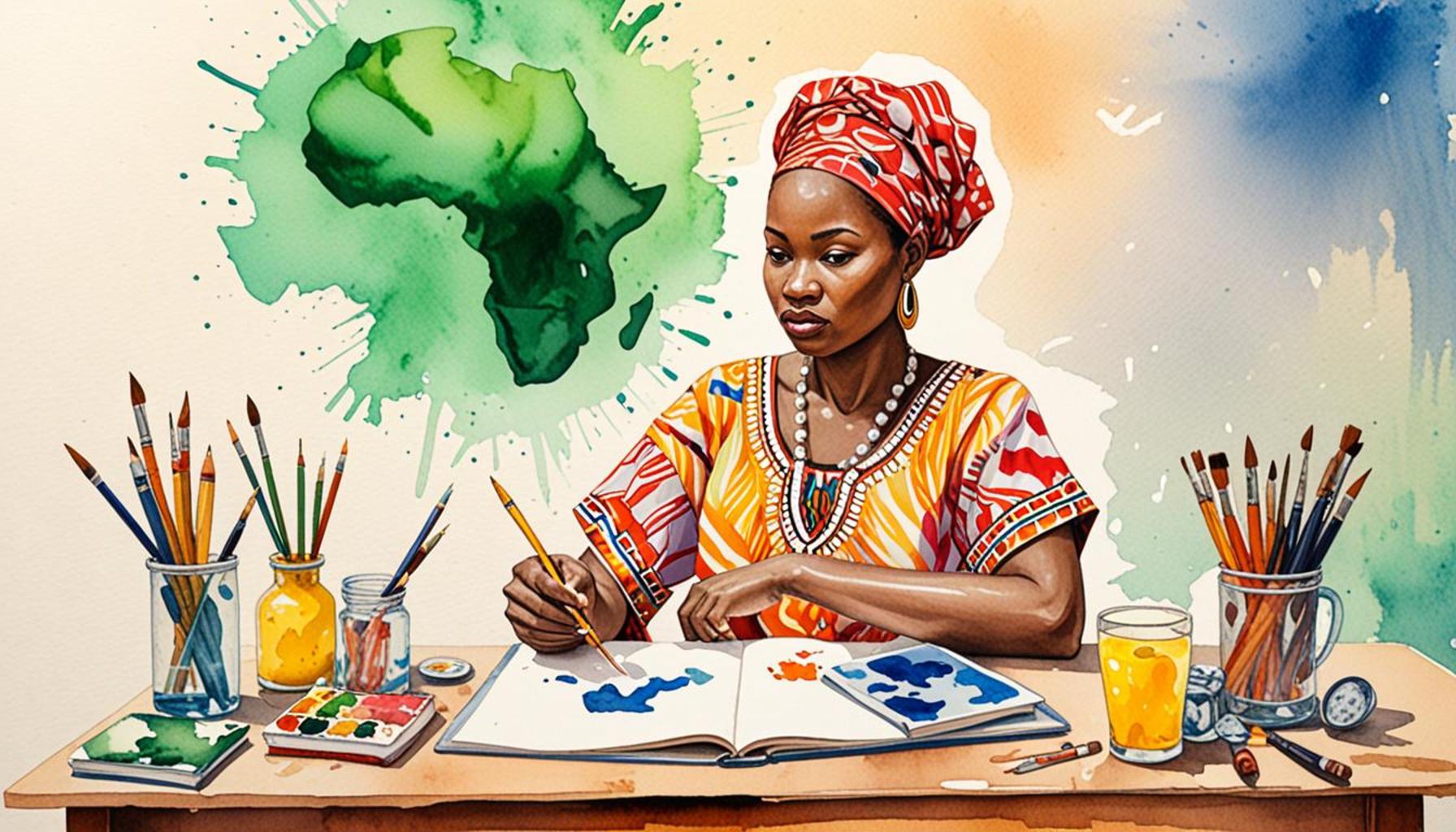Developing Emotional Intelligence Through the Practice of Self-Reflection

Understanding the Art of Self-Reflection
In today’s fast-paced world, the importance of emotional intelligence (EI) cannot be overstated. As individuals navigate their daily lives, the ability to understand and manage emotions has become a cornerstone of personal fulfillment and effective communication. This is particularly true in Nigeria, a nation rich in cultural diversity, where emotional subtleties often influence interpersonal dynamics significantly.
One impactful method to enhance emotional intelligence is through the practice of self-reflection. This conscious act of introspection empowers individuals to:
- Identify emotional triggers: By pinpointing specific situations or behaviors that elicit strong emotional reactions, individuals can prepare themselves to manage their responses more effectively in the future.
- Assess personal reactions: Understanding how one reacts to stressors or confrontations can pave the way for healthier responses and interactions.
- Recognize behavioral patterns: By looking back at past experiences and emotional responses, individuals can identify recurrent behaviors that may need adjustment—be it impulsiveness in conflict or withdrawal during stress.
In Nigeria, cultural nuances play a vital role in shaping relationships, where both community and family ties are deeply rooted. For example, during communal gatherings, one may observe how emotional awareness can enhance interactions. Recognizing how cultural expectations influence emotional expressions can aid in navigating these complex social waters. Consequently, self-reflection can be instrumental in:
- Improving communication skills: Clarity of thought leads to better articulation of feelings, minimizing misunderstandings.
- Enhancing conflict resolution abilities: With heightened awareness, individuals can approach conflicts with a calm demeanor, seeking solutions rather than exacerbating tensions.
- Fostering empathy: Understanding one’s emotional experiences can cultivate compassion for others, making it easier to relate to varying perspectives and emotions.
By embracing self-reflection, individuals not only gain insight into their emotional landscape but also ignite the path to personal growth. This journey is invaluable in fostering deeper connections with colleagues, friends, and family. For instance, sharing reflections during community meetings or family discussions can nurture stronger bonds based on mutual understanding and respect.
As we delve deeper into this subject, we will explore effective self-reflection techniques, such as journaling, meditation, and guided discussions, to illustrate their profound impact on emotional intelligence in daily life. Ultimately, mastering the art of self-reflection may well be the key to unlocking one’s fullest potential in both personal fulfillment and social harmony.
LEARN MORE: This related article may interest you
The Power of Self-Reflection in Emotional Intelligence
Self-reflection is more than just a moment of solitude; it is a powerful tool that fosters emotional intelligence by encouraging individuals to look inward. In the bustling social landscape of Nigeria, where communal interactions are commonplace, the ability to engage in self-reflective practices can significantly enhance one’s emotional responsiveness. This means not only acknowledging one’s own feelings but also understanding the emotional undercurrents in social contexts.
As individuals embark on the journey of self-reflection, they can employ various techniques to deepen their understanding of themselves and their interactions. These techniques can include:
- Journaling: Writing down thoughts and emotions can help clarify feelings and recognize themes over time. This act allows individuals to process their experiences and track their emotional growth.
- Meditation: Engaging in mindfulness practices can help steady racing thoughts, leading to a more profound understanding of emotional states and how they influence behavior.
- Guided discussions: Involving trusted friends or family members in reflective conversations can provide diverse perspectives, leading to a better grasp of one’s emotional responses and social dynamics.
- Visualization: Mentally picturing past events and exploring one’s responses can uncover behavioral patterns that need attention, enhancing emotional insight.
The implications of these practices in a Nigerian context cannot be overlooked. In a culture where emotional expressions can sometimes be nuanced or even restrained, self-reflection can equip individuals with the tools needed to navigate these complexities. For instance, during festive celebrations where emotions run high, the capacity to reflect on past reactions can lead to more intentional interactions, fostering harmony and understanding.
More importantly, self-reflection enables individuals to build stronger relationships, both personally and professionally. By gaining insight into their emotions, individuals can:
- Communicate more effectively: With a clearer understanding of their feelings, they can express themselves without misunderstandings, paving the way for more open dialogues.
- Approach conflicts constructively: Equipped with emotional insight, individuals are better prepared to navigate disagreements with calmness and diplomacy, reducing the likelihood of escalating tensions.
- Develop empathy: A refined emotional awareness allows one to relate to others’ experiences, making it easier to foster meaningful connections.
In the vibrant tapestry of Nigerian society, where connection and community are paramount, mastering the art of self-reflection is not merely a personal endeavor but a communal necessity. This practice holds the potential to transform individual relationships, driving the collective emotional intelligence of the society.
As we continue to explore self-reflection’s role in fostering emotional intelligence, we will delve into personal anecdotes and case studies that exemplify the transformative power of this practice. Through examining real-life applications, readers will gain a clearer perspective on how self-reflection can pave the way for enhanced emotional awareness and relational harmony across diverse social landscapes.
| Advantages of Self-Reflection | Impact on Emotional Intelligence |
|---|---|
| Enhanced Self-Awareness | By regularly practicing self-reflection, individuals gain a deeper understanding of their emotions, triggers, and underlying motivations. |
| Improved Decision-Making | Reflective practice fosters better emotional regulation, leading to more thoughtful choices that align with personal values. |
| Stronger Interpersonal Relationships | Understanding one’s emotional responses enhances empathy, allowing for greater connection and communication with others. |
| Increased Resilience | Self-reflection helps individuals build coping strategies, enabling them to navigate stress and adversity more effectively. |
The act of developing emotional intelligence through self-reflection is not just about understanding oneself; it also encompasses creating stronger bonds and resilience in a rapidly changing world. Learning to pause and introspect can accelerate one’s emotional growth and create pathways for profound personal transformation. The exploration of one’s emotions lays the foundation for a more fulfilled and balanced life. As the journey of self-discovery unfolds, the rewards of empathy, decision-making clarity, and relationship-building become increasingly apparent, leading individuals to a more enriched emotional landscape.
YOU MAY ALSO LIKE: Read read another article
Transformative Stories: Self-Reflection in Action
To truly appreciate the impact of self-reflection on emotional intelligence, one must look at real-life examples from diverse individuals navigating the complexities of Nigerian society. These stories provide a poignant lens through which we can observe how self-reflection cultivates deeper emotional awareness and enhances interpersonal relationships.
Consider the case of Adeola, a young professional navigating the fast-paced world of Nigerian corporate environments. Faced with increasing workplace stress and interpersonal conflicts, she discovered the practice of journaling. Through daily reflections, Adeola began to identify patterns in her emotional responses to colleagues. By tracking her feelings about specific interactions, she realized that her anxiety stemmed from her fear of conflict. This understanding led her to approach her colleagues with newfound confidence and strategies for constructive communication. The practice of journaling not only expanded her emotional vocabulary but also enabled her to build stronger professional alliances, enhancing her overall workplace satisfaction.
In a different vein, we can look at Chijioke, a teacher in a rural community. He often felt overwhelmed with the emotional needs of his students, which affected his performance and his relationships with fellow teachers. After attending a workshop on emotional intelligence, Chijioke was introduced to mindfulness meditation. This practice became his sanctuary, allowing him to reconnect with his thoughts and emotions amidst the chaos of his daily life. Through meditation, he learned to pause and assess his emotional state before responding to students and colleagues. As a result, he became more empathetic and patient, cultivating a nurturing classroom environment where students felt valued and understood.
Moreover, practitioners of self-reflection often find that sharing their journeys with trusted individuals amplifies their emotional growth. Take Funmi, a mother of three, who engaged in guided discussions with a close friend. During these sessions, she expressed her struggles with parenting. By reflecting on her emotions with a confidant, she developed a richer understanding of her triggers and fears. This newfound understanding empowered her to be more present and supportive of her children, ultimately enriching their familial relationships and fostering an environment of emotional safety at home.
These narratives are not isolated; they resonate strongly within the broader Nigerian context, exemplifying how self-reflection enriches emotional intelligence. Research shows that increased emotional intelligence is linked to improved cognitive functioning and better decision-making abilities. This indicates that self-reflection, as a vehicle for developing emotional intelligence, can even buoy professional competence amidst a competitive job market.
Furthermore, the practice of self-reflection enhances leadership qualities, crucial in Nigerian contexts where communal values frequently intersect with professional responsibilities. Leaders who embrace self-reflection can lead with empathy and authenticity. They can better navigate societal demands while aligning their organizational values with community expectations. When leaders reflect on their emotional states, they model healthy emotional behavior, inspiring growth and resilience within their teams.
In sum, the transformative power of self-reflection in cultivating emotional intelligence is evident through personal stories and supported by research findings. As individuals in Nigeria embrace self-reflection, it can catalyze a cultural shift, fostering emotional awareness that extends beyond personal realms into society at large. Whether in the boardroom, classroom, or the home, these reflective practices serve to enhance connections — unlocking collective emotional potential and paving the way for a more harmonious community dynamic.
CHECK OUT: Click here to explore more
Conclusion: Embracing Self-Reflection for Emotional Growth
In conclusion, the journey of developing emotional intelligence through the practice of self-reflection is not just a personal endeavor; it is a fundamental cultural shift that holds the potential to transform Nigerian society at large. The stories of individuals like Adeola, Chijioke, and Funmi illustrate how self-reflection can unveil deep emotional patterns, enhancing both personal development and interpersonal relationships. These narratives highlight the importance of recognizing our emotional responses as gateways to greater empathy and understanding.
Furthermore, the evidence linking emotional intelligence to improved decision-making and professional competence underscores the necessity of integrating self-reflection into our daily lives, be it in workplaces, schools, or homes. By fostering a culture of reflection, individuals can cultivate an environment that values emotional awareness, ultimately leading to more equitable and sustainable community dynamics.
As we encourage the practice of self-reflection, we unlock not only our own potential but also inspire those around us to engage in this transformative process. The implications are wide-reaching—leaders equipped with emotional intelligence can navigate complex challenges with greater agility, while parents and educators who reflect on their emotional states can create nurturing environments that foster growth and security.
By making self-reflection a priority, we position ourselves to lead with authenticity, embracing the rich tapestry of human emotions that defines our shared experiences. The path to emotional intelligence is ongoing, yet it is through self-reflection that we can truly embrace the essence of our humanity and enrich our connections within the vibrant tapestry of Nigeria.


